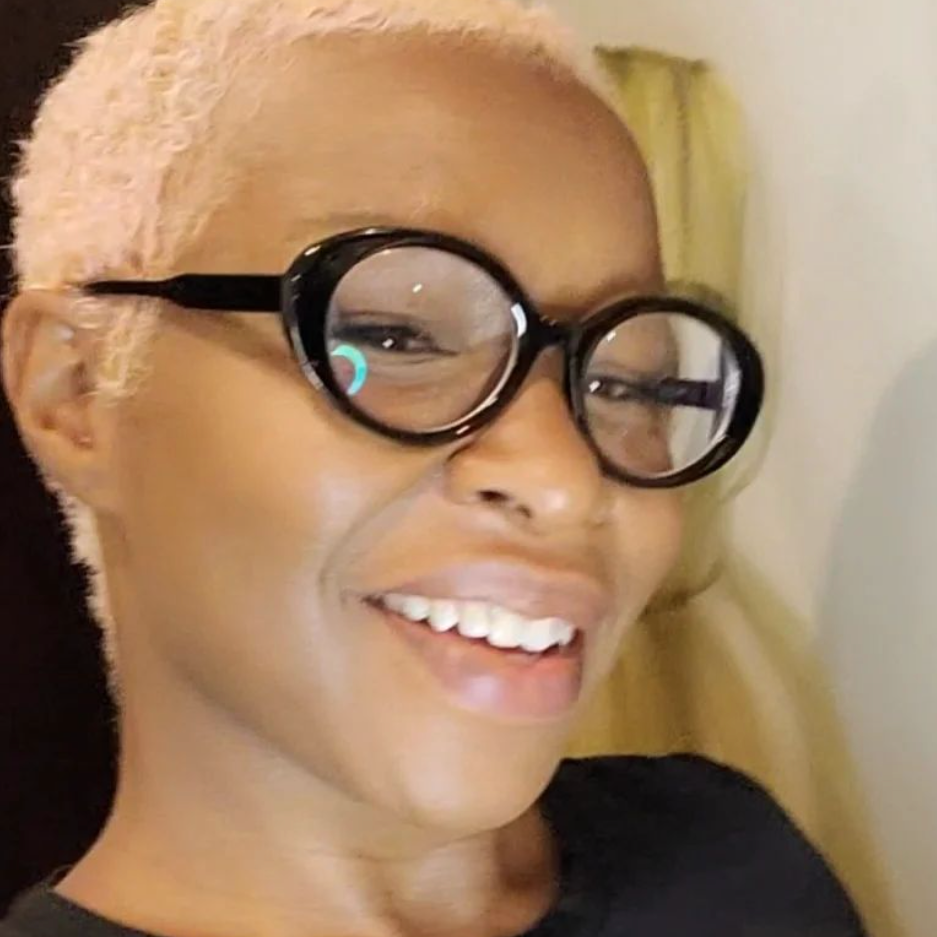Scott Woods
Scott Woods
Presentations Panel #2 Presenter
The Poetry, Pain and Power of “Solo”
“Solo” is a rare gem in Prince’s catalog: a collaboration that took almost no effort to realize, but stands as one of the most powerful examples of Prince’s vocal prowess, as well as his palate for poetic interpretation. Calling himself a poet first, Prince takes the work of Henry David Hwang and creates something so haunting that he only performs it live once in his entire career. Looking at the origin, production, and parallels of “Solo” raises more questions than it answers.
Scott Woods is the Emmy award-winning author or editor of two poetry collections (Urban Contemporary History Month, 2016, and We Over Here Now, 2013) and a collection of essays on Prince (Prince and Little Weird Black Boy Gods, 2017). He is the founder of Streetlight Guild, an award-winning, performing arts nonprofit. He has been featured multiple times in national press, including multiple appearances on National Public Radio. He was the president of Poetry Slam, Inc., is the co-founder of the Writers’ Block Poetry Night, and co-hosts the Race Against The Machine and The Purple Canon podcasts. In April of 2006, he became the first poet to ever complete a 24-hour solo poetry reading, a feat he bested seven more times without repeating a single poem.
Kamilah Cummings
Kamilah Cummings
Presentations Panel #2 Presenter
The Evolution Will B Colorized:
Facing Race in the Music of Prince
In 1984, Prince achieved the greatest crossover success of his career with the triumvirate of the Purple Rain soundtrack, film, and tour. With it, he demonstrated not only his musical prowess but also his brilliance as a black artist who knew how to market himself to a mainstream white audience. However, just a decade later with the release of the Come album, Prince embarked on his iconic mission to emancipate himself from his record label. At the same time, he boldly proclaimed the death of an iteration of his persona that no longer suited him.
The aptly titled track “Race,” from the Come album represents the end of Prince’s ambiguous, Pollyanna approach to race in his music. As Cedric Burrows argues in his book Rhetorical Crossover: The Black Presence in White Culture, to achieve mainstream success with white audiences, black artists are compelled to ignore race or espouse colorblindness in their music. Prince was no different. Early in his career, references to race were situated in fantasies of colorblind utopia. However, as his career progressed, Prince’s treatment of race in his music evolved from simplistic oblique references to more complex direct statements and indictments. He moved away from presentations of his own racial ambiguity to situate himself as a member of the black community and a participant in its ongoing liberation movement—to the consternation of some fans. Using Burrows’ framework for the stages of rhetorical crossover, this presentation will examine Prince’s lyrical evolution from utopian dreamer to black liberationist.
Kamilah Cummings is a writer, editor, and visiting senior lecturer at DePaul University in Chicago. She has presented on Prince at Purple Reign, the first academic Prince conference (University of Salford, UK), and at Polished Solid Prince symposia at New York University, Spelman College, and online. She has also presented on Prince at The 2021 Pop Convergence (PopCon). Her work on Prince has been published in the Howard Journal of Communications special issue Prince in/as Blackness . . . and Prince and Popular Music: Critical Perspectives on an Interdisciplinary Life (Bloomsbury). She has also created the course, Prince: A New Breed Leader. A House music researcher as well, she created the course The House Chicago Built, has presented on House music at Black Portraiture[s] IV (Harvard University), and appears in the documentary The Woodstock of House. She is passionate about exploring the intersections of race and identity in media and pop culture, with a particular focus on centering blackness in the narratives of black people.
Zachary Hoskins
Zachary Hoskins
Presentation Panel #3 Presenter
Come” as You Are: Alternative
Rock and (The Artist Formerly Known as) Prince
With its grim, monochromatic cover photo, one-word song titles, and dark, enigmatic lyrical content, 1994’s Come represented a stark aesthetic departure from Prince’s earlier output of that decade, betraying the influence of the then-ascendant alternative rock movement. This influence went both ways, as high-profile alternative artists like Nine Inch Nails, R.E.M., and Ween all at one point or another cited Prince as an inspiration. Yet, in contrast to his successful leveraging of new wave aesthetics to lay the groundwork for critical and commercial crossover a decade earlier, the artist then-“formerly known as” Prince remained pointedly kept at arm’s length of the “Alternative Nation”–even as other veteran recording artists, such as David Bowie, Iggy Pop, and Neil Young, were embraced with open arms as “godfathers” of the genre. By recontextualizing Come–along with concurrent projects from 1993-95, such as The Undertaker video album–as a noble failure by the Artist to write himself into the alternative music canon, we can more clearly perceive the limitations of “alternative” as a countercultural ethos, while belatedly recognizing his contemporaneous battle with Warner Bros. as one of the era’s few successful stands for a truly “alternative” musical culture.
Zachary Hoskins is the author of Dance / Music / Sex / Romance, a song-by-song blog examining the music of Prince in chronological order. His essay, “Rude Boy: Prince as Black New Waver,” was published in a special issue of Spectrum, A Journal on Black Men (2020), and his presentation from the Prince #1plus1plus1is3 virtual symposium (2021), “I Wish We All Were Nude: Controversy ‘Shower Poster’ as Aesthetic Linchpin and Artifact,” was published in the Journal of Popular Music Studies. He has also presented and appeared on roundtables at other @polishedsolid symposia, #TripleThreat40 (2023), #SexyMF30 (2022), and #DM40GB30 (2020), as well as the University of Minnesota’s Prince from Minneapolis symposium (2018). He holds an M.A. in Media Arts from the University of Arizona and B.A.’s in Film & Video Studies and Creative Writing & Literature from the University of Michigan.
Tammy Sharpe
Tammy Sharpe
Presentation Panel #3 Presenter
Come (The Future is Now)
Tammy Sharpe, a Brooklyn native, is a Visual Merchandising Manager, Stylist, Event Planner, and Creative Designer. She’s had the pleasure of styling Janet Jackson, Leslie Uggams, Rosie O’Donnell, Natalie Merchant, Roberta Flack, Cynthia Nixon, and more.
From the tender age of 5, she has embarked on a lifelong purple journey. She has since amassed a formidable collection of memories, having attended a plethora of his shows over the years.
Indelibly influenced by the legendary Prince, she has meticulously crafted her approach to fashion down to the tiniest details. Prince’s impact on her style is undeniable—a constant source of inspiration.
“Style is not thinking about style. So let me stop.” ~Prince
Robin Shumays
Robin Shumays
Presentation Panel #2 Presenter
Come 2 Orgasm - Prince’s
Treatise on Female Pleasure
Prince broke down barriers and challenged many so-called societal norms throughout his career, especially around sexuality. This paper explores Prince and the theme of female pleasure, emphasizing how he used his artistry to advocate for sexual equality.
Expectations around hetero sex are shaped by patriarchal attitudes that often prioritize male pleasure, creating a significant “pleasure gap” between men and women. Studies, such as those by the Kinsey Institute, reveal that perceptions of sex are heavily centered around the male orgasm, often neglecting women’s sexual satisfaction. This disparity is perpetuated by cultural assumptions that women should mask their desires and prioritize their male partner’s pleasure.
Prince’s music uniquely and consistently addressed these issues, making him a pioneering figure in the celebration of prioritizing female pleasure. His 15th studio album, Come particularly the opening and closing tracks, (Come, Orgasm) are a treatise on how to elevate a woman’s sexual experience.
Prince’s influence on artists like Janelle Monáe, (who celebrated sexual liberation on 2023’s The Age of Pleasure), is evidence of the enduring impact of his legacy on contemporary discussions about sexuality and agency.
Robin Shumays is a multi-talented artist and designer based in Queens, N.Y. She’s the creative force behind the dazzling and edgy fashion brand hennaflower, which has made its mark on NYC runways during shows for Harlem Fashion Week and Africa Fashion Week, among others.
Robin’s creativity doesn’t stop at fashion; she is currently studying classic burlesque, acting, and singing in order to fulfill her lifelong dream of becoming the ultimate theater kid. She is also a co-founder and dancer with Zikrayat, an Arabic Music and Dance Ensemble that has performed at venues such as Lincoln Center and Brooklyn Museum. In the world of day jobs, she has worked in web development, graphic design, social media strategy, and is currently a User Experience Engineer at Guardian Life.
A die-hard Prince fan since 1984, Robin is proud to have presented several papers on his work over the last few years. In 2021, she presented “Punk, Paisleys and Polkadots” at the 78-88: Prince, The First Decade: Interdisciplinary Conference. In 2022 and 2023 she presented “Bedlah Bedlam: An Exploration of Orientalist Fantasy and Fashion Via the Lens of Prince Rogers Nelson” and “Like a (Nasty) Girl Group” at the #SexyMF30 and #TripleThreat40 symposia. She produces and co-hosts a webinar podcast on Prince called The Purple Paradigm with her bestie, Dr. Mauri De Govia. Once upon a time, Robin even held a short-lived dream job as an administrative assistant at Paisley Park Music (Paisley’s short-lived music publishing wing).
Of all of her varied career and creative pursuits, Robin’s most treasured role is that of a mother to a very sweet and talented teen daughter.
Robert Loss
Robert Loss
Presentations Panel #1 Presenter
The Problem of Abundance:
Notes on How the Exodus Began, Pt. 1
This presentation will examine Prince’s critiques of the music industry and racial capitalism in the context of Come and the early-mid 1990s. Warner Bros. released Come in August 1994, squarely in the middle of Prince’s very public protest against and contract dispute with the record label. More than a year earlier, Prince had supposedly retired from studio recording, informed Warner Bros. that he would fulfill the terms of his contract only with songs from his Vault, and changed his name to the unpronounceable Love Symbol. Behind the scenes, he’d battled with Warners primarily over two issues: its ownership of his master recordings and the label’s willingness to match Prince’s prolific creativity. By my count, between January 1993 and August 1994 Prince completed at least 42 songs that he wanted to release in some form.
For a musician, such an abundance of material might create an artistic problem, a puzzle to solve, i.e., how do the works go together, how to group them for release. But in the logic of racial capitalism, the problem of abundance is that a surplus of product lowers the economic value which can be extracted from it. This is why Warner Bros. wanted to limit Prince to one release per year. However, this logic depends on wide profit margins and contractual arrangements that benefit corporations, not musicians. As personally important as these issues were for Prince, he also understood them as systemic issues—and not only did he offer a critique, he was already experimenting with innovative solutions. None of this is as overtly evident on Come as it would be a year later on The Gold Experience, but it does help explain the album’s track list, the demarcation of Prince v. Love Symbol as a tactic to thwart racial capitalism, and even the album’s cover photo and its subtitle: 1958 – 1993.
Robert Loss is an associate professor and the Director of Liberal Arts at the Columbus College of Art and Design. He is the author of Nothing Has Been Done Before: Seeking the New in 21st-Century American Popular Music (Bloomsbury Academic), which includes a chapter on Prince’s later work. His essay “How the Exodus Began: Prince and the Black Working Class Imagination” appeared in a recent special Prince issue of Black Magnolias Literary Journal. He has presented on Prince at numerous conferences, including Prince From Minneapolis (2018), #DM40GB30 (2020), #1plus1plus1is3 (2021), Prince: 78-88 (2021), #SexyMF30 (2022), and #TripleThreat40. His talk from #1plus1plus1is3, “Deconstruction: Work & Racial Capitalism in The Rainbow Children,” was published in the Journal of Popular Music Studies. He lives in Columbus, Ohio, with his wife and their pets.
Mauriciere de Govia
Mauriciere de Govia
Presentations Panel #2 Presenter
From Ecstasy to Isolation: Sexual Empathy and the
Dualities of Pain and Pleasure in Prince’s Come Album.
Prince’s 15th studio album Come (1994) stands as a provocative testament to the multifaceted nature of sexuality, emotional vulnerability, and personal introspection. This presentation delves into the intricate layers of the album, spotlighting “Pheromone” as the quintessential track embodying sexual innuendos and experiences that leave the listener in “naked body sweat” sparking an immersive journey of pleasure and sexual exploration that blends eroticism with sacredness. In stark contrast, the track”Papa” reveals Prince’s poignant portrayal of abuse, highlighting the dichotomy of love and pain. This song along with the brooding “Dark” and the isolating “Solo” serve as emotional counterpoints of Prince’s multiplicities awakening the possibilities in the listener to choose their musical path of pain or pleasure. This presentation explores the album’s exploration of erotic dualities and emotional depths, showcasing Prince’s ability to navigate the complexities of human desire and emotional turmoil. Lastly, it will uncover the layers of passion, vulnerability, and introspection that define Prince’s Come as an album that was in a commitment to offer pleasure and impact the roles of sexual empathy and self-expression in music and culture.
Mauriciere de Govia, Ed.D. (Dr. Mauri) is a leader and transformation coach with over 25 years of experience in the field of education. Always a leadership strategist, Dr. Mauri is committed to transforming communities and redefining generational legacies via high-quality teaching and learning experiences that create new results that unleash limitless possibilities for all who participate in her workshops and seminars. She is the CEO and founder of The de Govia Group, LLC (2014), which is an organization that is committed to awakening the leadership maverick within all people. The de Govia Group, LLC aims to ignite, inspire, and innovate its clients via experiential teaching via life coaching, yoga and mindfulness, and meditation. Dr. Mauri is also the creator of “The Urban Vanguard” podcast on SoundCloud; a platform for 21st-century leaders who are mavericks of their own lives, and lastly, she is the co-host of “The Purple Paradigm: Conversations and Revelations in a Post-Prince World”; an online show dedicated to the genius of the artist Prince.
Dr. Mauri received her Bachelor of Arts in Film Production (1995), Masters of Science in Elementary Education (1999), and her Advance Certificate in School Administration (2003) from Brooklyn College, The City University of New York. She received her Ed.D. in Educational Leadership from Sage College, Albany (2017). She is the recipient of the Outstanding Student in a Doctoral Program Award, The Sage Colleges, April 2017, the District 23 Legacy Award, July 2016, the Brooklyn Borough President Citation for Leadership, June 2016, the United States House of Representatives Proclamation, June 2016, the MHBA- She is Me Courage Award, April 2016, the Above and Beyond Award- Community Education Council, D23, Spring 2003, and the DOE/Broad Foundation, Exceptional Leadership -1st yr. Principal Award, Spring 2005. In May 2021, she was featured on the “Streets Politicians” podcast with Tamika Mallory. She possesses coaching certification via John Maxwell, INC. and the International Coaching Federation. She lives in Brooklyn, New York, and is the mother of two awesome children.
Erica Thompson
Erica Thompson
Presentations Panel #3 Presenter
"You Don't Think God is Sexy?"
Three Interpretations of "Come"
Death and resurrection have always been strong themes within Prince’s body of work. Within the broader story he was trying to convey in the early to mid 1990s – or was making up as he went along – these themes are obvious. In the summer of 1993 Prince ‘died’ and resurrected as the ineffable one depicted as the symbol we have come to know all too well. One could see the ‘Come’ album as Prince’s journey through the underworld with its counterpart The Gold Experience as the resurrection in the form of ‘symbol’. In many ways that journey through the underworld is connected to 1993’s ‘Glam Slam Ulysses’ stage play. This presentation tries to connect the dots between Homer’s depiction of the aftermath of the Trojan war and the aftermath of Prince’s war with his record label.
Erica Thompson is a features reporter at the Chicago Sun-Times. Her articles have also appeared on Hapersbazaar.com, Billboard.com, Mic.com, HuffPost.com and TVLine.com.Her writing on race and gender has garnered awards from the National Association for Black Journalists, Society of Professional Journalists, Press Club of Cleveland, and the Ohio Associated Press Media Editors.
A native of Cincinnati, Ohio, Thompson has a master’s degree in journalism from Ohio University’s acclaimed E.W. Scripps School of Journalism, where she completed her thesis on Prince. She was invited to present her research on Prince’s spirituality at Purple Reign: An interdisciplinary conference on the life and legacy of Prince at the University of Salford, UK; the Prince from Minneapolis symposium at the University of Minnesota; the Prince EYE NO: Lovesexy symposium at New York University (NYU), the virtual Prince #DM40GB30 symposium at NYU; the virtual Prince #1plus1plus1is3 symposium at NYU; and the #SexyMF30 virtual symposium at NYU.
She has been published in Theology and Prince, an edited collection on theology and the life, music, and films of Prince Rogers Nelson. She is currently finishing her first book, a comprehensive study of Prince’s spiritual journey.
Edgar Kruize
Edgar Kruize
Presentations Panel #1 Presenter
Come As Prince’s Odyssey Through The Underworld
Death and resurrection have always been strong themes within Prince’s body of work. Within the broader story he was trying to convey in the early to mid 1990s – or was making up as he went along – these themes are obvious. In the summer of 1993 Prince ‘died’ and resurrected as the ineffable one depicted as the symbol we have come to know all too well. One could see the ‘Come’ album as Prince’s journey through the underworld with its counterpart The Gold Experience as the resurrection in the form of ‘symbol’. In many ways that journey through the underworld is connected to 1993’s ‘Glam Slam Ulysses’ stage play. This presentation tries to connect the dots between Homer’s depiction of the aftermath of the Trojan war and the aftermath of Prince’s war with his record label.
Edgar Kruize is a freelance author, journalist and content creator based in the Netherlands. He is co-owner of communications agency buro33. He is specialized in music in general and specifically the entertainment industry. Kruize has been working for various (trade) magazines, concert and tour promoters, festival organizers and record companies for over two decades. He has written nine books on various musical subjects.
All it took was a cough in the Raspberry Beret video to have the young Edgar notice the artist he’d later found out to be Prince. Prince’s impressive body of work has been an inspiration in life and work. Kruize is the author of the book Prince: The Dutch Experience (2017), in which all of Prince’s steps in the Netherlands are retraced. He’s curently working on an updated (international) edition. Also, he co-hosts the Dutch Prince-blog PurplePicks.net, wrote the liner notes for the 2019 Sign “O” The Times deluxe DVD/Blu-ray set (along with appearing in the documentary about the making of that movie), and (co)hosted multiple Prince-themed lectures and live interviews. He is also the co-host of the #PrinceTwitterThread series.
Crystal Wise
Crystal Wise
Presentation Panel #2 Presenter
Blood, Bones, and Boxes
Prince’s Resistance to Racism
By 1994 audiences were well aware of Prince’s resistance to being put in a box even if it still left many scratching their bopping heads…“Am I black or white?” On his 15th full-length studio album, Come, Prince revisits identity, a recurring theme in his artistry and lyrics, on the track, Race. He continues to draw attention to his humanity above all else through the song’s refrain, “Race in the space, I mark human…” However, this track is an important point in the evolution of Prince’s lyrical political consciousness as he explicitly names, racism and his views on mitigating it. In this presentation, I situate the lyrics of Race within Black Intellectual Thought to illustrate how Prince’s message converged and diverged with this tradition and implications for how society, specifically within education, addresses race and racism.
Crystal N. Wise is an assistant professor in literacy education at the University of Minnesota. Her research interests include the historical and contemporary language and literacy practices of African-Americans as acts of liberation and resistance. Her publications on Prince, “(A)Political Prince: An Analysis of Prince’s Political Consciousness” and “It’s All About What’s In Your Mind: The Origins of Prince’s Political Consciousness” explore his evolving world views and (a)political identities represented in his lyrics.









